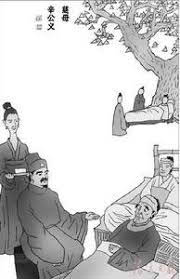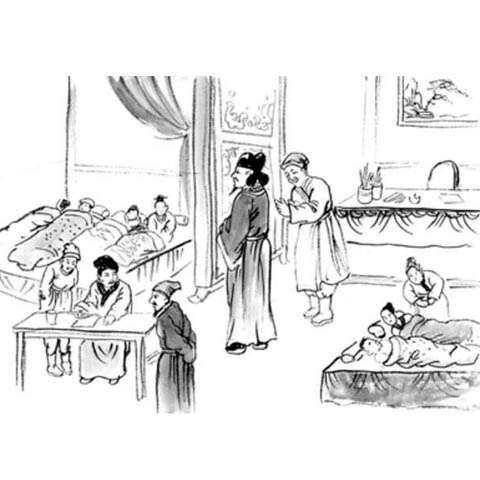 During the Sui Dynasty (581-618 AD), Xin Gong Yi (辛公義) was appointed as the governor of Mou Zhou (牟州) prefecture.
During the Sui Dynasty (581-618 AD), Xin Gong Yi (辛公義) was appointed as the governor of Mou Zhou (牟州) prefecture.
Upon assuming his post, despite being worn out during travel, he went straight to the prison. He looked for a spot at an open air vacant lot and started interrogating the prisoners by himself. Continuing the process for more than 10 days, he settled all the pending cases.
Xin then went back to his court and began handling new cases in the same manner. He never put off his work or caused delays in settling lawsuits. Most cases were decided on the spot. Whenever he encountered complicated cases where the respondent had to be temporarily detained, Xin would stay the night at the court.
Somebody then advised Xin, “There is a stipulated time period for those public matters. Why work in such a hurry and end up asking for trouble?”
Xin replied, “Being a governor of meager virtue and ability, I may not be able to resolve all the lawsuits. How can I bear the thought of detaining people while I rest in the comfort of my home?”
Xin’s explanation moved the people, even the prisoners, who looked at him with great admiration. Since then, whenever quarrels happened among folks, the elders would intervene and advise them, “Don’t bother our governor with this petty matter.”
Most of the quarreling parties would often reach an amicable settlement.
When Xin was assigned to Min Zhou (岷州) prefecture, the residents there had a customary fear of diseases. The whole family would just leave the patient alone in the house to avoid contact with him. Since no one was taking care of the patient, he always died.
Upon assuming his office in Min Zhou, Xin was bent on ending this custom. But he did not pursue it through an official announcement but silently asked people to bring all the patients to his official court.
During summer time, when diseases were epidemic, hundreds of patients packed the court and its lobby. Xin spent his own salary on doctors and medicine for the patients. He personally looked after each of them, monitoring and inquiring about their sickness with great patience.
Xin was the least concerned about his own health, and stayed with the sick all day long. He set up a bed among them.
The relatives of the patients were deeply moved by the great deeds of Xin. They felt shame and regret, and kept thanking him.
From then on, whenever somebody got sick and tried to seek help from Xin’s office, their family would try to convince him to stay home for treatment and take care of him by themselves.
Over time, the people of Min Zhou learned to be kind to each other. Xin had indeed changed the social mores in the prefecture.
Categories
True service to the people
